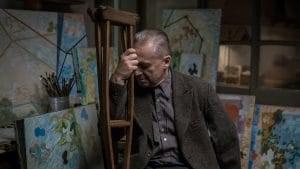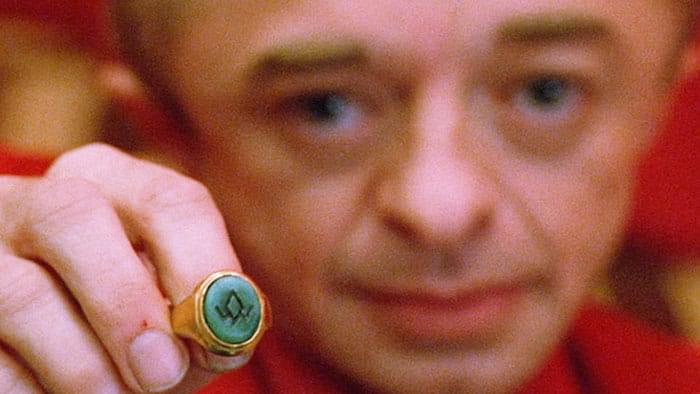
The name Andrzej Wajda assuredly brings good memories to the most attentive cinephiles because the celebrated Polish filmmaker, who left us last year at the age of 90, was the one responsible for masterpieces such as the 50’s war trilogy A Generation, Kanal, and Ashes and Diamonds, and some wise proletariat observations such as Man of Iron, Man of Marble, and The Promised Land.
Biographic dramas like Danton, Korczak, and Walesa, Man of Hope, also occupied an important section of Wajda’s filmography, and Afterimage, about the avant-garde Polish painter Wladyslaw Strzeminski, concludes a distinguished career filled with numerous prizes.

“…a well-told story that eschews any sort of abstraction or ambiguity.”
The flawless Boguslaw Linda embodies the noble painter and art professor who resisted to the devouring advances of the Communist party in Poland after the post-war years. Despite had lost one leg and one arm when serving in the First World War, Strzeminski is depicted as a very active man and a zealous pedagogue, capable of captivating the students with the challenging ‘Theory of Vision’, a product of his own reflection that comprehends art, freedom of expression, and perception of life.
As the creator of the first art school in Poland and the second in Europe, he is a highly respected figure among enthusiasts of the modern art. However, his personal life became a bit messy after his wife, also a vanguard artist, had left him for unknown reasons to die alone in a cold hospital in Lodz, where they lived. Things got worse when he refused to corroborate the totalitarian party’s ideas of social realism. From then on, his visionary capacities were totally discarded by the government members who, considering him a traitor and an agitator, forbade him to work and teach. The professor was banned from the Lodz’s State Higher School of the Visual Arts, which he co-founded, and couldn’t even buy materials for his paintings.
The underestimated artist still receives his most devoted students at home. After a few months without work, he can only rely on their help, especially Roman (Tomasz Wlosok) and Hania (Zofia Wichlacz), who were very dear to him, especially in the most difficult phase of his life. Also, his friendship with the poet Julian Przybos (Krzysztof Pieczynski) was maintained until his depressing last days.

“…decent farewell from Mr. Wajda.”
Another essential aspect covered by Wajda is the somewhat cold relationship between Strzeminski and his forlorn young daughter, Nika (Bronislawa Zamachowska), despite her unremitting concern about his health – “you smoke too much!” she used to say.
Impeccably photographed by Pawel Edelman (The Pianist, Ray), Afterimage is a well-told story that eschews any sort of abstraction or ambiguity. It rather prefers to validate a panoply of emotions associated with the decadent condition of a man who, even deprived of a dignified life, never succumbed to the temptation of letting political ideologies interfere with what should remain pure and untouched.
Even though I didn’t need to make any effort to follow the story until its very last minute, there was never a concrete climax or an occasional emotional swirl in its storytelling. For this reason, when the film came to an end, I naturally started to think about Nika, wondering what could have happened to her, rather than in Strzeminski’s terrible suffering.
Nevertheless, the film is a decent farewell from Mr.Wajda, whose passionate dedication to his chosen subjects and the honest way he addressed them, will be missed by every world cinema aficionado.

Afterimage (2017) Directed by Andrzej Wajda. Written by Andrzej Mularczyk. Starring: Boguslaw Linda, Zofia Wichlacz, Tomasz Wlosok, Bronislawa Zamachowska.
6 out of 10

